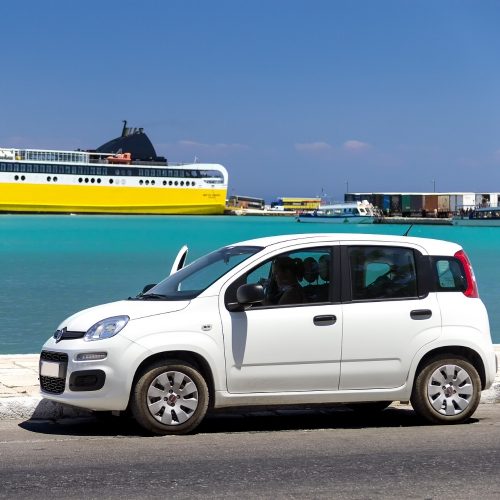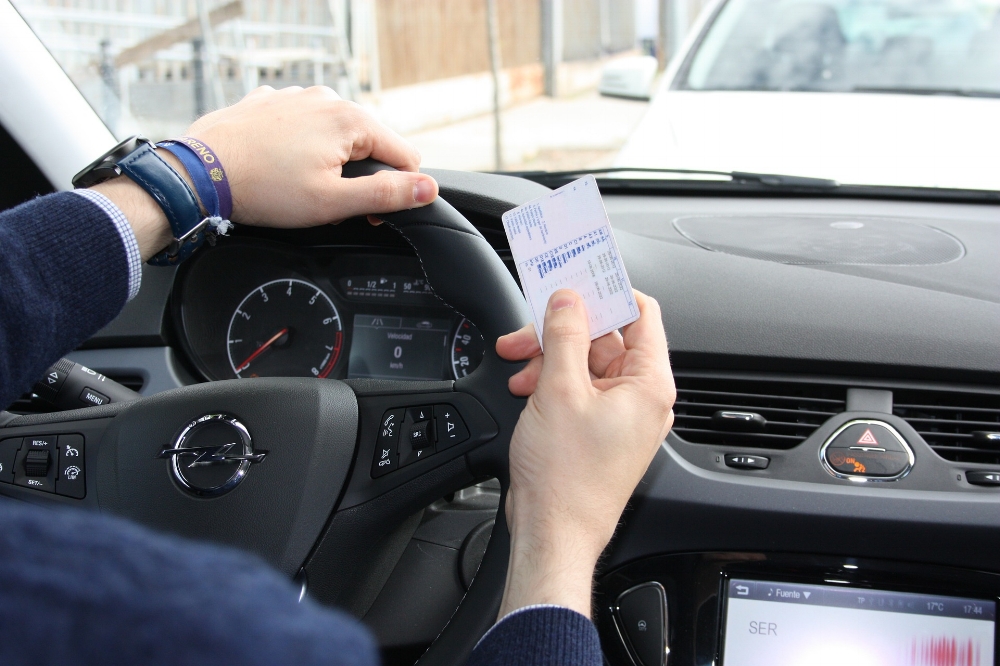
How to: Rent a Car in Spain
Dear Peter,
Although while in big cities it isn’t necessary, sometimes the best way to get to remote places in Spain is by car. There are a lot of cars available to rent—or hire if you’re British—in Spain as it is quite popular (and inexpensive) to do with people coming from overseas. If you are studying or living abroad, this is also a good option if you don’t want to deal with owning your own car but want to get away at weekends.However, there are some things you should think about before you sign the dotted line at the end of your contract. Here’s what you should know before you rent:
 Legal Questions:
Legal Questions:
Read the fine print: While this should be a given for everything we do, the biggest lie on the internet is clicking the “I have read and agree with the terms and conditions,” mostly because we don’t bother to read through the whole document. However, when renting a car the fine print will give you insight into what you are renting (and the extras that come with it). Pay special attention to the type of insurance, additional driver rules, theft policy, fuel agreements, and the possibility to change/cancel the rental agreement.
Check your license: As a European this isn’t a problem as your license will be valid abroad in Spain, however, as an American, consider getting an international permit. While most places won’t hassle you with an American license until you’ve been living in Spain for six months (which is the maximum you are allowed to drive here without getting a Spanish license), if you have any problems with the police while driving abroad, they will look for this international permit as it acts as add-on to your license, translating the important information. Make sure you use a certified provider such as AAA or AATA and follow the directions they give you. The permit will cost around $20.00 plus shipping and handling fees.
 Check the minimum age: The legal driving age in Spain is 18 years old, making this the minimum legal age to rent a car. However, depending on the company, you might find that they have set their own minimum rental age and/or that they will charge you extra until you are 25 years old or have had your license for more than two years. This all has to do with the insurance risk of renting to younger people or inexperienced drivers (perhaps biased but also statistically accurate), so make sure you understand your company’s policy if you are under 25 or have only had your license for a short period of time.
Check the minimum age: The legal driving age in Spain is 18 years old, making this the minimum legal age to rent a car. However, depending on the company, you might find that they have set their own minimum rental age and/or that they will charge you extra until you are 25 years old or have had your license for more than two years. This all has to do with the insurance risk of renting to younger people or inexperienced drivers (perhaps biased but also statistically accurate), so make sure you understand your company’s policy if you are under 25 or have only had your license for a short period of time.
Check the VAT: Make sure that your prices include the VAT,or added tax to goods across Europe. In Spain the acronym is IVA and is about 21% on the Peninsula (although it is less on the Canary Islands). If you don’t see this value added into your final price, expect to pay that much more when you close the deal.
Identify existing issues: Before you pull out of the lot, you will probably be handed a drawing of the car where you are expected to note any existing conditions. In Spain, with the small roads and tight parking spaces, nicks and dents are bound to happen. However, with a rental car, unless you get the fully covered insurance, you might have to pay for repairs. By correctly identifying all existing issues before you go, you will save yourself problems when you drop off the car.
Renting on a budget:
Hire from smaller, local companies: Bigger companies are usually well known and can afford to have desks at the airport. However, smaller, local rental places often offer less expensive deals for similar services. At the same time, be aware that renting from a smaller company may mean that you have to return it where you got it or only have a few return options (as they won’t have as many hubs as larger companies).
 Return where you pick up: No matter who you rent from, you can probably save a small chunk of change by returning the car to the same place you picked it up. If you know you want an inexpensive rental but that you will leave it somewhere different from where you got it, make sure you factor this into your budgeting process (and it might be cheaper to go with a slightly more expensive company than a cheap one that charges 200€ for alternative drop-off location).
Return where you pick up: No matter who you rent from, you can probably save a small chunk of change by returning the car to the same place you picked it up. If you know you want an inexpensive rental but that you will leave it somewhere different from where you got it, make sure you factor this into your budgeting process (and it might be cheaper to go with a slightly more expensive company than a cheap one that charges 200€ for alternative drop-off location).
Book in advance and be flexible with your dates: By looking into your options well before coming to Spain you are increasing the possibility of getting a good deal. In addition, if you are flexible with the dates you want the car, you can often find a better deal than if you have fixed dates. This is because certain parts of the year are more expensive than other, but also because weekends tend to be cheaper than during the week and sometimes rental companies have offers for week-long rentals that only start on a specific day.
Final things to consider:
Automatic or manual: Most Spanish cars are manual so if you are going to need an automatic car, make sure you specify this ahead of time (waiting until you get to the desk may be too late). In addition, be aware that automatic cars are often in high demand during the American tourist season and can end up costing you hundreds of dollars more than a manual car. By doing your research ahead of time you will ensure that you are getting what you need at a decent price.
Purchasing the tank or returning full: When you are signing for your car you will probably have the option of purchasing the tank of gas at slightly higher than gas station price or returning the car full. If you go for the first option you don’t have to worry about searching out a gas station on the way to your drop off, but you will pay a premium for the tank. If you take the latter, you will have to make sure to find somewhere to fill up close by before you hand over the car. Both options have pros and cons, so make sure you think about it before making a choice.
Getting full-coverage insurance: Getting full coverage might set you back a large chunk of change, but make sure that you understand what basic coverage offers you before you reject it. Like I said previously, dings and scratches are common in Spain because the streets tend to be really narrow and have a lot of movement. Add to that the fact that you will be driving around in a rental car (which can make people think there are valuables inside), and you almost double your risk of having someone break-in. While my family tends to go with the full-coverage option, I know people who don’t and have no problem. At the same time, the number of broken windows and scratched cars around Granada, a relatively safe city, are nothing to scoff at.
Car-sharing: If, after all this, you’ve decided that it just isn’t worth the fuss to rent a car in Spain, that doesn’t mean you can’t get around by car. Blablacar and other car-sharing platforms can offer you the luxury of travelling by car without having to deal with any of the previous details. It does require a bit more organizing ahead of time as you will be sharing with someone else, but it can be just as comfortable and fun as planning a road trip yourself.
Have you rented a car in Spain? What was your experience?? Do you have anything important you would add to the list?
Sincerely,
Spain




